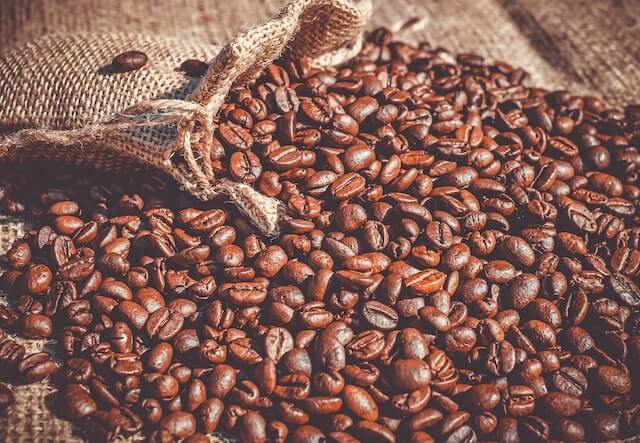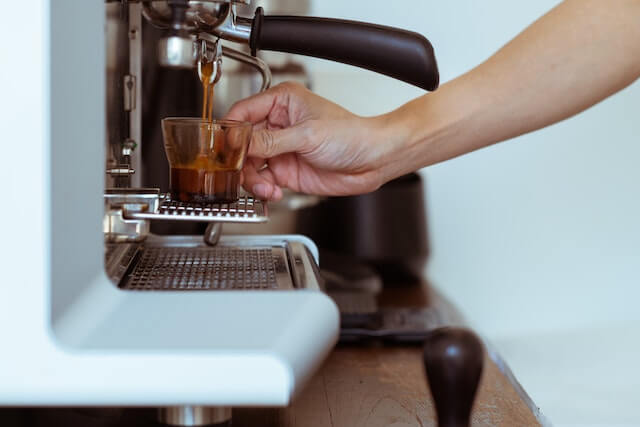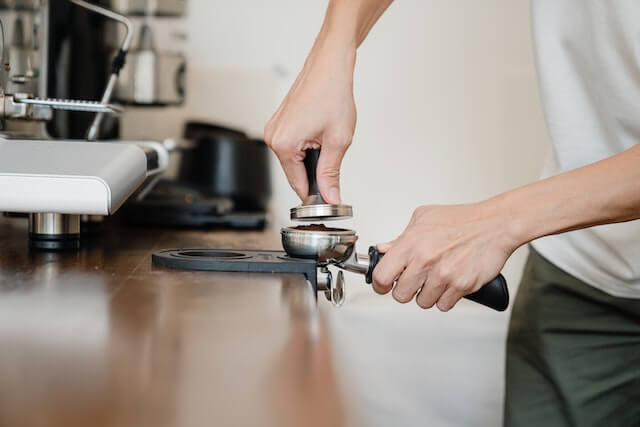Why Did Your Espresso Taste Sour or Bitter?
Are you a coffee lover who enjoys the rich and intense flavor of espresso? If you’re reading this article, chances are you’ve noticed an off-taste in your morning cup of Joe. Specifically, the sourness that can sometimes accompany a shot of perfect espresso. It can be a frustrating experience when you’re expecting a bold and robust flavor, but instead, you get a sour aftertaste that just ruins the whole experience. In this post, we’ll explore the reasons why your espresso is sour, and what you can do to prevent it from happening.
1. The coffee beans used – The first and most significant factor that can make good coffee taste sour or too bitter is the quality of the beans used. The sour taste is a good indication that the beans were under-roasted. Under-roasted beans have higher acidity levels than fully-roasted beans, which can result in a sour flavor. Therefore, it’s crucial to ensure that the beans used for your espresso are roasted to perfection.

2. Water Temperature – The second factor that gives the espresso a sour taste is the water temperature. If the water temperature is too low, i.e., below 200°F (93°C), the shot of espresso may taste bitter or sour. Under-extraction and low extraction can also cause the sour flavor that we want to avoid. It would be best to consider factors like the duration of the extraction, tamping, and pressure. Therefore, you’ll need to ensure the water is at optimal temperatures and the extraction time is stable and adequate.
3. The Grind size – The third factor that influences the sour espresso is the coffee grind. If the coffee is ground too coarsely or too finely, it can affect the flavor and result in sourness. If the grounds are too fine, the water passes through them more slowly, resulting in a bitter coffee with a sour taste. On the other hand, if the grounds are too coarse, the water passes through too quickly, resulting in a weak and sour shot. Therefore, you must have the right size of the grind to get the perfect flavor.
4. Milk Quality – Milk quality can also affect the flavor of your espresso coffee, especially if you indulge in lattes or cappuccinos. Milk that is tainted or not fresh can cause a sour flavor in your espresso. Hence it’s crucial to use quality milk with the right amount of fat content and freshness to avoid sour notes in your coffee.
5. Cleaning Equipment – Equipment is essential when making an espresso shot, and if not cared for correctly, it can lead to poor outcomes. Sometimes the coffee oils can build up in the machine, resulting in bacteria and other microorganisms, which can cause a tart or sour flavor in your espresso. Regular cleaning of your equipment can help prevent this unpleasant experience and ensure a perfect shot of good espresso each time.
What To Do With Burnt or Bitter Tasting Coffee?

Do you love coffee, but hate it when it has a burnt taste or bitter? It’s a horrible feeling when you’re excited to enjoy your morning cup of joe, only to find that it tastes like burnt rubber. It’s the worst.
Thankfully, there are several things you can do to salvage your coffee and make it taste delicious again. let us look at some of the best ways to revive burnt or bitter-tasting coffee. So if you have a cup of coffee that isn’t quite hitting the spot, keep reading.
1. Add Salt to Your Coffee
Yes, you read that right. Adding a pinch of salt to your coffee can help to reduce bitterness and make it taste less burnt. It’s a little trick that’s been used by baristas and coffee lovers for decades, and it works. Just add a tiny pinch of salt to your cup of coffee, stir it well, and enjoy the difference in taste.
2. Mix it With Milk or Cream
If your coffee is burnt or bitter, you can try mixing it with milk or cream to soften the taste. This will help to mellow out the bitterness and make it taste smoother. If you don’t have milk or cream, you can also try adding a little bit of butter or coconut oil to your coffee. The healthy fats in these ingredients will help to balance out the bitterness and make your coffee creamier.
3. Add Cinnamon or Chocolate
Another way to make your coffee flavor better is to add cinnamon or chocolate to it. These ingredients help to mask the bitterness in your coffee and add another layer of flavor. Just add a pinch of cinnamon or a teaspoon of cocoa powder to your coffee and stir it well. You’ll be surprised at how much of a difference it makes.
4. Use a Paper Filter
If you’re using a French press or a coffee maker that doesn’t have a paper filter, your coffee may be tasting burnt or bitter because of the coffee oils that are being released into the brew. Using a paper filter can help to trap these oils and make your coffee taste smoother and less bitter.
5. Invest in High-Quality Coffee
Last but not least, if you’re consistently experiencing burnt or bitter-tasting coffee, it’s probably time to invest in high-quality coffee beans. Cheap coffee beans are often over-roasted and can taste burnt or bitter as a result. Investing in high-quality coffee beans that are roasted to perfection can make a significant difference in the taste of your coffee.
How to Fix Sour Espresso: A Comprehensive Guide

Are you tired of your sour coffee? This is a common problem that many coffee enthusiasts face. But don’t worry, we’re here to help! In this comprehensive guide, we’ll discuss the three critical topics for adjusting sour espresso: Adjusting Your Grind Size, Checking Your Espresso Machine, and Choosing the Right Beans. By following our step-by-step guide, you’ll learn how to fix a sour espresso shot.
1. Adjusting Your Grind Size
A significant factor in the taste of your espresso is the grind size of your coffee beans. An under-extracted coffee often tastes sour because the water hasn’t had enough time to extract all the flavors from the coffee grounds. To fix this issue, try making adjustments to your grind size.
Finer Grind: If your shot tastes sour, your grind is likely too coarse. Try adjusting your grinder to a finer setting, which will increase the extraction time and result in a more balanced flavor.
Consistency: Ensure that your coffee grounds are consistent in size. Unevenly ground coffee can lead to uneven extraction, causing sour or bitter flavors.
2. Checking Your Espresso Machine
Your espresso machine plays a crucial role in determining the quality of your coffee. Here are some factors to consider when examining your machine:
Portafilter: Make sure your portafilter is clean and free of old coffee grounds. A dirty one can negatively impact the taste of your espresso.

Water Flow: Check how the water passes through your espresso machine. Slow flow can lead to under-extraction, while too-fast water flow can cause over-extraction. Adjust the flow rate as needed to achieve a balanced extraction.
Temperature: The ideal brewing temperature for espresso is between 195°F and 205°F (90°C to 96°C). Ensure that your espresso machine’s temperature is within this range for optimal results.
Pressure: A consistent pressure of 9 bars is crucial for extracting the best flavors from your coffee beans. Check your machine’s pressure gauge to ensure it’s operating at the correct pressure.
3. Choosing the Right Coffee Beans
The quality of your beans significantly impacts the taste of your espresso. Keep these factors in mind when selecting beans of coffee:
Freshness: Freshly roasted coffee beans are essential for a great-tasting espresso. Look for beans with a roast date within the past two weeks.
Bean Type: Arabica beans are known for their nuanced flavors and lower acidity, making them an excellent choice for espresso. Robusta beans have higher caffeine content and can add a strong, bold flavor to your espresso if used sparingly.
Roast Level: A medium to dark roast is ideal for espresso, as it provides a balance of sweetness, acidity, and bitterness.




